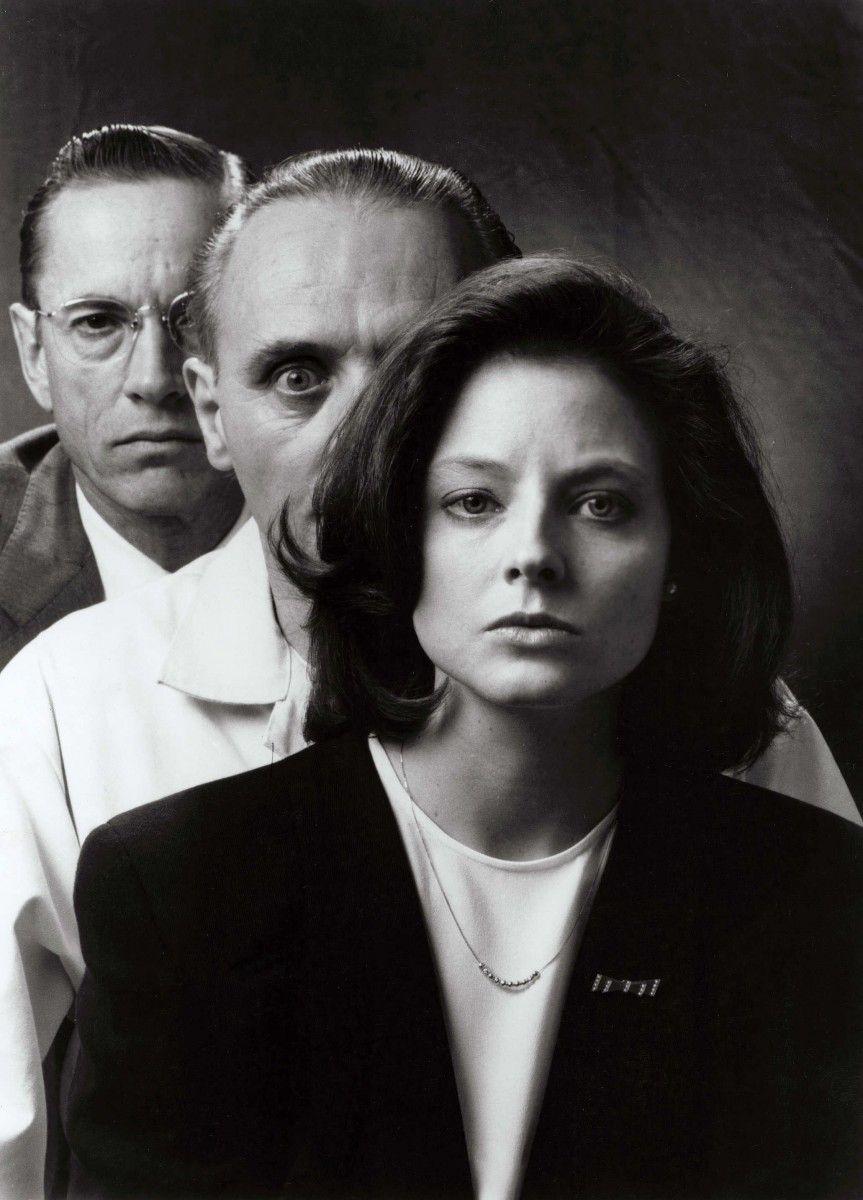
Introduction
Some films do more than entertain—they resonate, inspire, and leave an indelible mark on our hearts. These Oscar-winning movies did just that and you must watch.
The Academy Awards, commonly known as the Oscars, stands as one of the world’s most prestigious awards ceremonies and has been held annually since 1929. Over the years, this event has recognized some of the best movies ever made. Oscar-winning films exemplify cinematic excellence, showcasing extraordinary storytelling, remarkable performances, and pioneering direction. While the Oscars annually honour the finest in filmmaking, some movies shine even brighter among the winners. These standout films have earned the coveted Best Picture award and have left a lasting impact on the film industry. They have shaped genres, influenced cinematic trends, and continued to engage audiences across different eras.
“From the golden age of Hollywood to the present day, these Oscar-winning films have defined the evolution of cinema.”
In this blog post, we’ll look at the nine of the most celebrated Oscar-winning movies in cinematic history.
By focusing on these nine films, we aim to:
- Recognize Excellence: Highlight the cinematic brilliance that earned these movies the most coveted awards in the film industry.
- Showcase Influence: Explore how these films have shaped the movie industry and influenced future filmmakers and storytellers.
- Celebrate Diversity: Acknowledge the range of genres, stories, and themes honoured by the Oscars, showcasing the diversity of storytelling that transcends time.
- Inspire Audiences: Encourage readers to watch or revisit these masterpieces, gaining a deeper appreciation for the art of filmmaking.
- Create a Connection: Engage with movie enthusiasts by discussing films that have not only won awards but also touched hearts and sparked discussions.
These nine films have set benchmarks in the industry, whether through their technical achievements, emotional depth, or cultural significance.
The Godfather (1972) – an Oscar-winning film
Director : Francis Ford Coppola
Screenplay: Mario Puzo and Francis Ford Coppola
Starring: Marlon Brando, Al Pacino, James Caan, Richard S. Castellano, and Diane Keaton
Genre: Crime/Drama
Awards: Best Picture, Best Actor (Marlon Brando), Best Adapted Screenplay
Plot Summary:
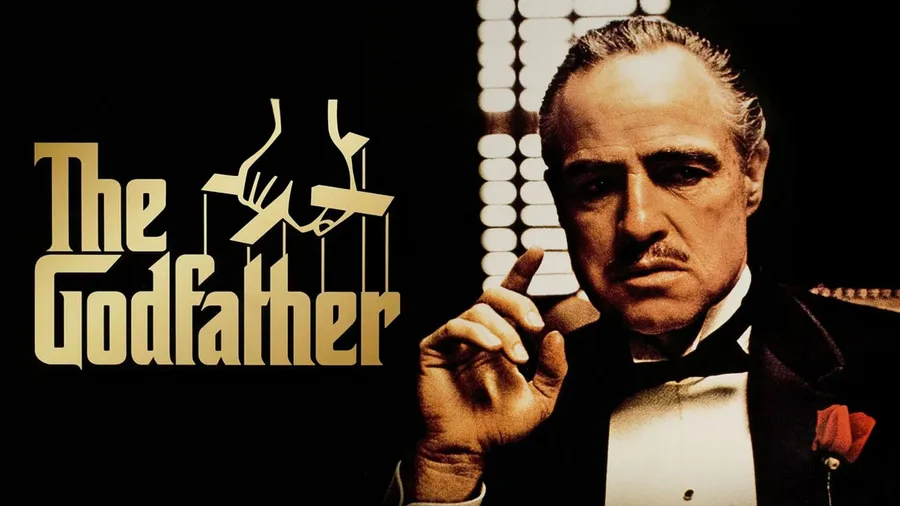
The Godfather is a remarkable film and an adaptation of Mario Puzo’s book, produced by Francis Ford Coppola. It takes place in the mid-20th century, and it follows the life of Vito Corleone, an organized crime head living with his family. In Part II, the story spans from a young Vito as he begins to navigate organized crime in 1917 New York City and carries on with his son Michael (Al Pacino), initially uninterested in continuing the family business but ultimately drawn towards reigning over it. A subsequent assassination attempt on Vito transforms Michael from an inconspicuous, battle-hardened youth into the most powerful mafia boss of his time. The film tackles complex subjects such as authority, honor, and the ethical problems within criminal empires makes it a must watch Oscar-winning movies.
Titanic (1997) an Oscar-winning film
Director: James Cameron
Screenplay: James Cameron
Starring: Leonardo DiCaprio, Kate Winslet, Billy Zane, Kathy Bates, Danny Nucci, and Bill Paxton
Genre: Epic Romance/Disaster
Awards: Best Picture, Best Director (James Cameron), Best Original Song (“My Heart Will Go On”), and 8 other Academy Awards
Plot Summary:
James Cameron’s “Titanic” is a sprawling epic that masterfully combines a romance with the historical drama of the ill-fated voyage of the RMS Titanic in 1912. The film interweaves a fictional love story with the real-life tragedy of the sinking of the Titanic makes it a must watch Oscar-winning movies.
The story follows Jack Dawson (Leonardo DiCaprio), a struggling artist, and Rose DeWitt Bukater (Kate Winslet), a wealthy young woman who is engaged to the self-absorbed Cal Hockley (Billy Zane). Despite their different social standing and Rose’s impending marriage, Jack and Rose embark on a passionate romance set against the backdrop of the catastrophic sinking of the Titanic.
As their romance intensifies, the Titanic hits an iceberg and begins to sink into the icy waters of the Atlantic. The film portrays the chaos and emotional struggles of the passengers as they face the harsh reality of their dangerous situation.
The story is told from the perspective of the elderly Rose (Gloria Stuart), who describes her experiences on board the Titanic to a modern-day treasure hunter named Brock Lovett (Bill Paxton). Lovett and his team are searching for a priceless necklace that was lost in the shipwreck. Rose’s poignant memories take the audience back to the opulent days of the Titanic and the harrowing events of the ship’s final hours.
Schindler’s List (1993) must watch Oscar-winning movie
Director: Steven Spielberg
Screenplay: Steven Zaillian
Starring: Liam Neeson, Ben Kingsley, Ralph Fiennes, Caroline Goodall, and Jonathan Sagall
Genre: Historical Drama
Awards: Best Picture, Best Director (Steven Spielberg), Best Adapted Screenplay, and 5 other Academy Awards
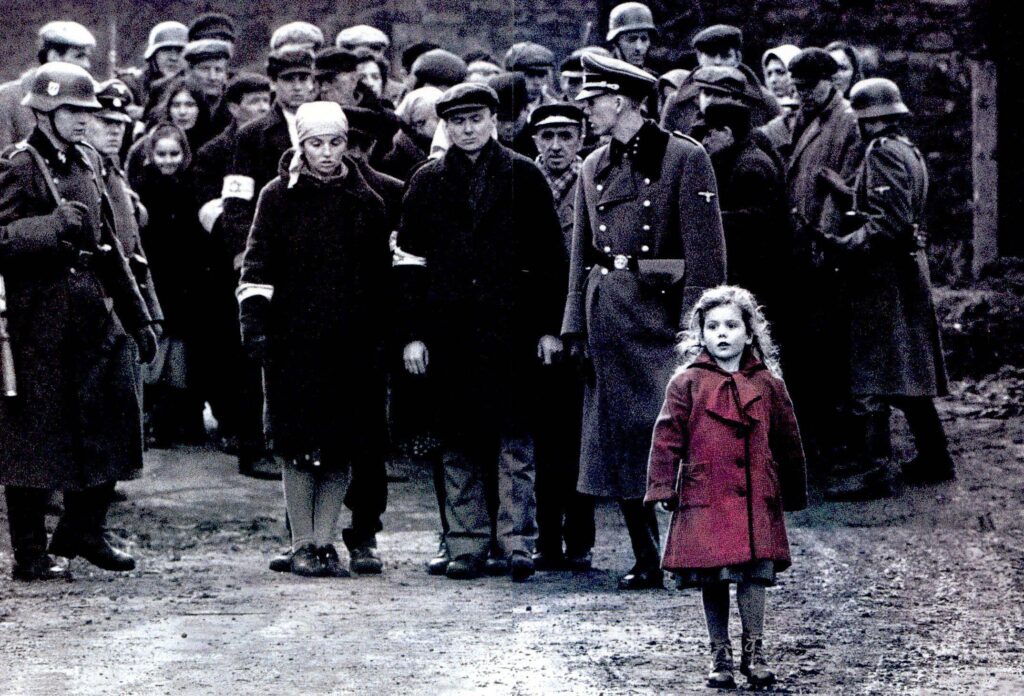
Plot Summary:
One of the top Oscar-Winning Movies you must watch is Steven Spielberg’s “Schindler’s List”, a remarkable historical drama that narrates the true story of Oskar Schindler (Liam Neeson), a businessman from Germany who saved the lives of more than thousands of Polish Jews during the Holocaust. The film is set in occupied Poland at the time of the Second World War and shows Schindler’s transformation from conflict profiteer to philanthropist.
The movie follows Schindler’s efforts to guard Jewish people by using them in his factories and, as a result, saving them from the horrors of the awareness camps. His initial motives are earnings-oriented; however, as he witnesses the atrocities devoted by the Nazis, his experience of ethical duty and empathy grows. The narrative also sheds light on the harrowing stories of the Jewish humans he rescued and the ruthless moves of the Nazi regime, especially those of brutal SS officer Amon Goth (Ralph Fiennes).
The Lord of the Rings: The Return of the King (2003)
Director: Peter Jackson
Screenplay: Fran Walsh, Philippa Boyens, and Peter Jackson (based on the novel by J.R.R. Tolkien)
Starring: Elijah Wood, Viggo Mortensen, Orlando Bloom, Cate Blanchett, Ian McKellen, and Sean Astin
Genre: Epic Fantasy
Awards: Best Picture, Best Director (Peter Jackson), Best Adapted Screenplay, and 8 other Academy Awards
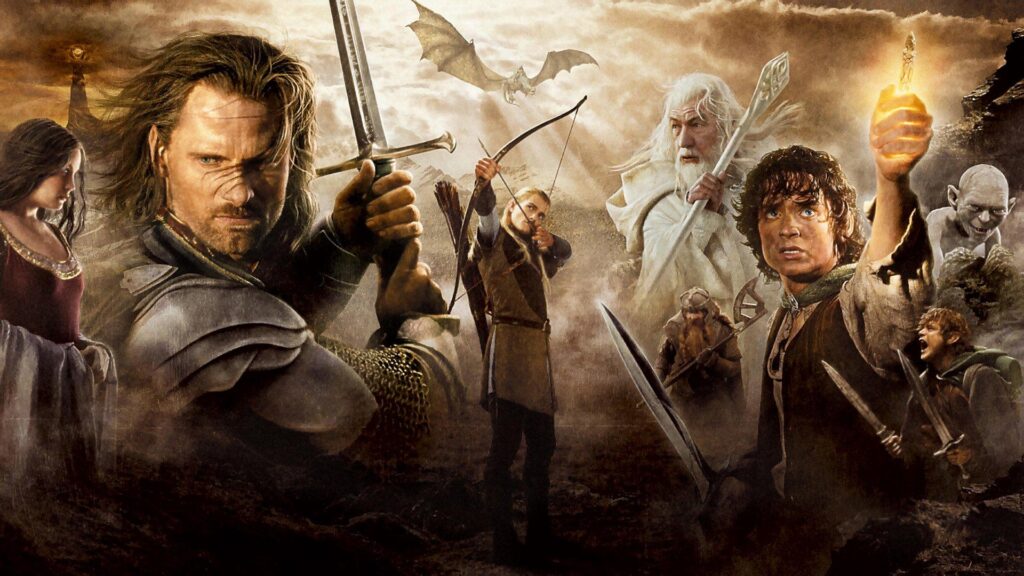
Plot Summary:
The Lord of the Rings: The Return of the King brings Peter Jackson’s famous trilogy to a close with a grand finale. It’s a dramatic showdown between good and evil, as the dark power of Sauron threatens to engulf the world.
The film picks up where its predecessor The Two Towers left off, with the story about a fallen Middle Earth teetering on the brink of collapse as it races to an action-packed climax when Frodo Baggins Elijah Wood and Samwise Gumgy Sean Astin goes on their dangerous journey to destroy the One Ring in a Mountain Destruction fire. Meanwhile, Aragorn sends an army of humans, elves, and dwarves into a combined battle formation in preparation for a final confrontation with Sauron’s forces starring Viggo Mortensen as Aragorn, Orlando Bloom as Legolas, and John Rhys -Davis is Gimli.
Forrest Gump (1994)
Director: Robert Zemeckis
Screenplay: Eric Roth (based on the novel by Winston Groom)
Starring: Tom Hanks, Robin Wright, Gary Sinise, Mykelti Williamson, and Sally Field
Genre: Drama/Comedy
Awards: Best Picture, Best Actor (Tom Hanks), Best Director (Robert Zemeckis), Best Adapted Screenplay, and 2 other Academy Awards.
TOM HANKS
Forrest Gump
Plot Summary:
Forrest Gump, directed by Robert Zemeckis, is a touching and uplifting oscar winning movie about a man with a low IQ but a big heart. Tom Hanks plays Forrest Gump, a man from Alabama whose kindness and optimism lead him through important events of the 20th century.
The movie shows Forrest’s journey from his Southern roots to unexpected roles in major historical events, like the Vietnam War and the Watergate scandal. Despite challenges and disabilities, his genuine nature and determination bring him success and meaningful relationships.
Forrest’s life is deeply connected to his love for Jenny Curran (Robin Wright), his childhood friend. Throughout his adventures as a football star, war hero, and businessman, Forrest’s devotion to Jenny and his wish to make a positive impact stay strong.
Gone with the Wind (1939)
Director: Victor Fleming
Screenplay: Sidney Howard (based on the novel by Margaret Mitchell)
Starring: Clark Gable, Vivien Leigh, Leslie Howard, Olivia de Havilland, and Hattie McDaniel
Genre: Historical Romance/Drama
Awards: Best Picture, Best Director (Victor Fleming), Best Actress (Vivien Leigh), Best Supporting Actress (Hattie McDaniel), and 7 other Academy Awards
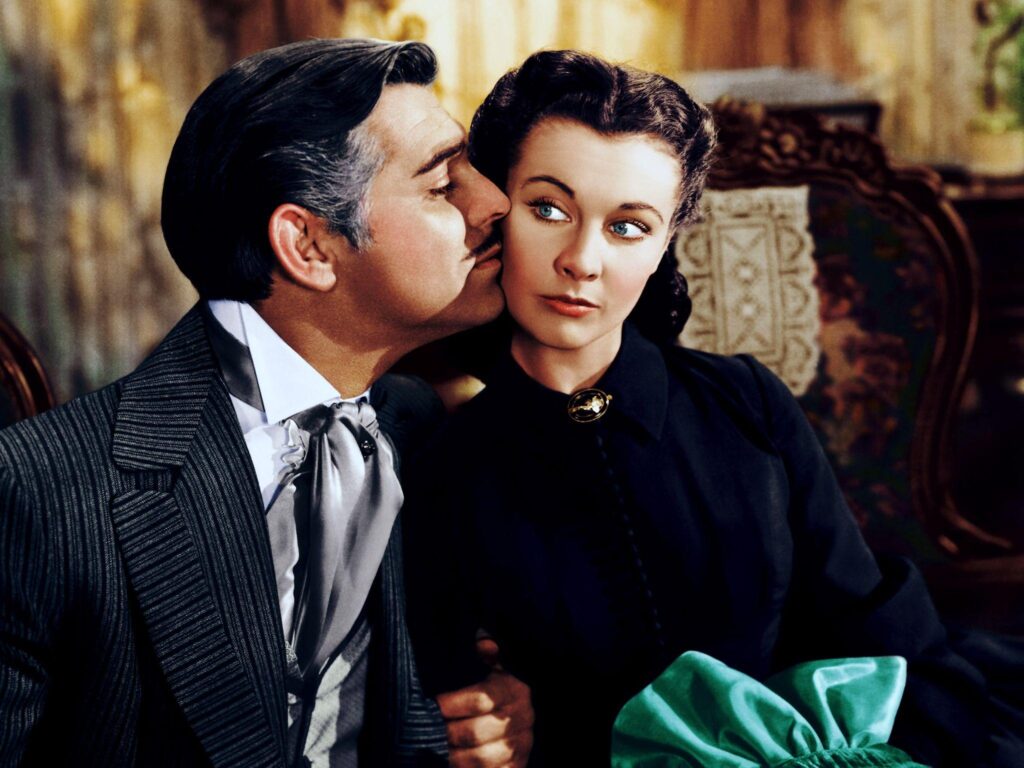
Plot Summary:
Gone with the Wind, directed by Victor Fleming, is a sweeping historical romance set during the American Civil War and the Reconstruction era. Adapted from Margaret Mitchell’s Pulitzer Prize-winning novel, the film follows Scarlett O’Hara (Vivien Leigh), a determined Southern belle, as she grapples with love, loss, and survival in one of the most tumultuous times in American history.
The narrative begins with Scarlett’s privileged life on the O’Hara family plantation, Tara, in Georgia. When the Civil War erupts, Scarlett’s world is turned upside down. She is infatuated with Ashley Wilkes (Leslie Howard), but he is married to Melanie Hamilton (Olivia de Havilland). Despite her feelings for Ashley, Scarlett marries the roguish Rhett Butler (Clark Gable), a man whose charm and ruthlessness challenge her deeply held beliefs and values.
As the war progresses and the South faces devastation, Scarlett’s resilience and determination are tested. The film follows her journey as she struggles to rebuild her life and protect her beloved Tara amidst the personal and societal upheaval brought about by the war and Reconstruction. The complex relationships between Scarlett, Rhett, and Ashley drive the film’s dramatic tension, culminating in a powerful and emotional conclusion.
One Flew Over the Cuckoo’s Nest (1975)
Director: Milos Forman
Screenplay: Lawrence Hauben and Bo Goldman (based on the novel by Ken Kesey)
Starring: Jack Nicholson, Louise Fletcher, Will Sampson, Danny DeVito, and Christopher Lloyd
Genre: Drama
Awards: Best Picture, Best Director (Milos Forman), Best Actor (Jack Nicholson), Best Actress (Louise Fletcher), and 2 other Academy Awards

Plot Summary:
“One Flew Over the Cuckoo’s Nest,” directed by Milos Forman, is a powerful and groundbreaking drama that explores themes of individuality, freedom, and institutional control. Based on Ken Kesey’s acclaimed novel, the film tells the story of Randle P. McMurphy (Jack Nicholson), a charismatic and rebellious convict who fakes insanity to serve his prison sentence in a mental institution.
Upon arriving at the psychiatric hospital, McMurphy clashes with Nurse Ratched (Louise Fletcher), the authoritarian head nurse who maintains strict and oppressive control over the patients. McMurphy’s unorthodox methods and vibrant personality bring a sense of hope and defiance to the patients, challenging the dehumanizing practices of the institution. His influence inspires the other patients to stand up for themselves and assert their individuality.
The film vividly portrays the struggles between McMurphy’s rebellious spirit and Nurse Ratched’s authoritarian rule, highlighting the tension between freedom and control within the institution. The story unfolds with emotional depth as McMurphy’s battle against the system escalates, leading to a poignant and dramatic conclusion.
The Silence of the Lambs (1991)
Director: Jonathan Demme
Screenplay: Ted Tally (based on the novel by Thomas Harris)
Starring: Jodie Foster, Anthony Hopkins, Scott Glenn, Ted Levine, and Anthony Heald
Genre: Psychological Thriller/Crime
Awards: Best Picture, Best Director (Jonathan Demme), Best Actor (Anthony Hopkins), Best Actress (Jodie Foster), and Best Adapted Screenplay
Plot Summary:
The Silence of the Lambs (1991) is a gripping psychological thriller that delves into the complex and chilling world of criminal psychology. The story revolves around Clarice Starling, a young FBI trainee, who is tasked with interviewing Dr. Hannibal Lecter, a brilliant but incarcerated serial killer with a penchant for cannibalism. Her goal is to get Lecter’s insight to help catch another killer, known as Buffalo Bill, who is abducting and murdering young women.
As Clarice navigates her interactions with Lecter, she must confront her own fears and insecurities. Lecter, with his sharp intellect and manipulative nature, plays mind games with her, revealing unsettling truths about both himself and her. The tension mounts as Clarice races against time to prevent further killings.
The film is renowned for its intense performances, especially by Jodie Foster as Clarice and Anthony Hopkins as Lecter, whose chilling presence and dialogue have left a lasting impact on the genre. The narrative explores themes of power, control, and the psychological interplay between hunter and hunted.
Amadeus (1984)
Director: Milos Forman
Screenplay: Peter Shaffer (based on his play)
Starring: Tom Hulce, F. Murray Abraham, Elizabeth Berridge, and Roy Dotrice
Genre: Historical Drama/Biography
Awards: Best Picture, Best Director (Milos Forman), Best Actor (F. Murray Abraham), Best Adapted Screenplay, and 4 other Academy Awards
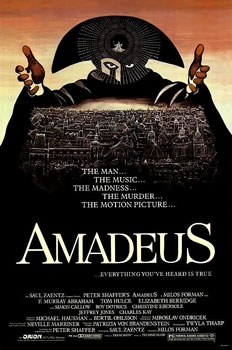
Plot Summary:
Milos Forman has directed this Oscar winning movie Amadeus. This movie is a dramatic and visually stunning portrayal of the life and career of Wolfgang Amadeus Mozart, as seen through the eyes of his contemporary and rival, Antonio Salieri. Peter Shaffer’s acclaimed play is the inspiration behind this film that fictionalizes the turbulent relationship between the two composers.
The narrative unfolds from Salieri’s (F. Murray Abraham) perspective, who is portrayed as a devout and talented composer burdened by his own mediocrity and envy towards the prodigious Mozart (Tom Hulce). Salieri is consumed by jealousy as he observes Mozart’s extraordinary musical talent and the acclaim he receives, which contrasts sharply with Salieri’s own struggles to achieve similar recognition despite his dedication and piety.
The film explores Salieri’s complex emotions as he admires Mozart’s genius while simultaneously plotting to undermine him. Through this lens, “Amadeus” delves into themes of artistic rivalry, the nature of genius, and the impact of envy and obsession on one’s life. The story captures the grandeur of Mozart’s music and the dramatic intensity of his personal and professional struggles.
Conclusion
In summary, these Oscar-winning films have left an indelible mark on cinema history. They have set benchmarks in storytelling, performance, and filmmaking that continue to inspire and influence the industry today. Whether through ground breaking visuals, powerful narratives, or unforgettable characters, these films represent the pinnacle of cinematic achievement.
If you haven’t watched them yet, I highly encourage you to do so. Each film offers a unique experience that is sure to leave a lasting impression. After watching, share your thoughts in the comments—I’d love to hear what you think!
And if your favorite Oscar-winning film didn’t make the list, let me know! Drop the title in the comments and let’s discuss the masterpieces that have shaped your love for cinema.
